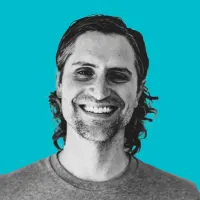


The techniques of mindfulness and meditation have garnered a lot of interest recently because of their huge potential to improve well-being and provide a sense of inner peace. While the term "meditation" can be used to describe a number of techniques used to direct and quiet the mind, "mindfulness" refers to deliberately attending to the present moment without making judgments. It has been demonstrated that using these approaches can reduce stress, increase self-awareness, and improve mental and emotional well-being in general.
One well-known figure in the fields of mindfulness and meditation is Daniel Brown, a Dharma teacher and master. Theravada Buddhism, Tibetan Buddhism, and Zen are just a few of the contemplative traditions that Daniel Brown has dedicated his life to studying. His unique technique, which combines traditional wisdom with modern psychology, offers a realistic and approachable path to personal development.
Daniel Brown's teachings place a strong emphasis on cultivating mindfulness and insight while utilizing both formal meditation practices and practical applications. He offers guidance on how to understand the nature of the mind, emotions, and the self while also emphasizing the importance of compassion and moral behavior. Daniel Brown encourages people to explore their inner experiences and cultivate a more authentic and fulfilling existence through his teachings. His approach has resonated with many people who want to enhance their meditation practices and live in the fast-paced world of today with more clarity and compassion.

The techniques of mindfulness and meditation have garnered a lot of interest recently because of their huge potential to improve well-being and provide a sense of inner peace. While the term "meditation" can be used to describe a number of techniques used to direct and quiet the mind, "mindfulness" refers to deliberately attending to the present moment without making judgments. It has been demonstrated that using these approaches can reduce stress, increase self-awareness, and improve mental and emotional well-being in general.
One well-known figure in the fields of mindfulness and meditation is Daniel Brown, a Dharma teacher and master. Theravada Buddhism, Tibetan Buddhism, and Zen are just a few of the contemplative traditions that Daniel Brown has dedicated his life to studying. His unique technique, which combines traditional wisdom with modern psychology, offers a realistic and approachable path to personal development.
Daniel Brown's teachings place a strong emphasis on cultivating mindfulness and insight while utilizing both formal meditation practices and practical applications. He offers guidance on how to understand the nature of the mind, emotions, and the self while also emphasizing the importance of compassion and moral behavior. Daniel Brown encourages people to explore their inner experiences and cultivate a more authentic and fulfilling existence through his teachings. His approach has resonated with many people who want to enhance their meditation practices and live in the fast-paced world of today with more clarity and compassion.
You May Also Like

Thomas McConkie


